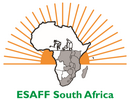Minister launches small-scale fisheries in Kwazulu-Natal
The Minister of the Department of Agriculture, Forestry and Fisheries (DAFF), Senzeni Zokwana, launched the Small-Scale Fisheries Sector of KwaZulu-Natal eMandeni, KwaMazitapele, in Kwazulu Natal on 19 March. Zokwana said government took a decision, in line with the amended Marine Living Resources Act, to introduce small-scale fisheries as a way of addressing the injustices of the past and to contribute to building the rural and coastal economy.
The launch of the sector involved:
- Declaring small-scale fishing co-operatives by handing over the co-operative, certificates to the first twenty-nine (29) registered co-operatives with 2 000 members from communities located in the greater KZN area to be allocated 15-year fishing rights,
- Announcing the schedule for the rights application and allocation process, and
- Announcing some of the support programmes for small-scale fishing co-operatives in partnership with the Provincial Government of KZN.
“Our imagination is to see small-scale fisheries graduate from small-scale primary fishing to processing and marketing. We must see them owning big vessels and competing at a bigger scale in the market. Fisheries is a sector worth a trillion rand in the ocean economy. It cannot be left to the whims of those who dominate it to open up to those who were previously disadvantaged,” the minister said.
Many other economic activities linked to harvesting by small-scale fishers occur as a direct result of their efforts. These are:
- Sales of fish and fish products,
- Fish cleaning and preparation,
- Boat-building and boat repairs,
- Net-making and repairs.
Women benefit from the multiplier effects brought about by small scale fishing.
The Food and Agriculture Organisation (FAO) viewed South Africa’s small-scale fisheries policy (SSFP) as the most progressive of its kind in the world. The challenge was how the SSFP would be implemented given its broad and idealistic scope. In 2013 the Small-Scale Fisheries Implementation Plan, a document explaining how the policy would be implemented over a period of 5 years and at an estimated cost of over R400 million, was adopted.
After a window for expression of interest was open to all coastal communities, KwaZulu Natal had
2 184 small-scale fishers recognised for the province. The Small-Scale
Fishing Regulations stipulate that small-scale fishing communities can
be recognised as a small-scale community only if there is a minimum of
20 recognised small-scale fishers.
The recognised small-scale fishers from the remaining communities that do not meet the minimum requirements will join other recognised fishers to form a virtual small-scale fishing community. There are 37 communities recognised as small-scale fishing communities in KZN of which 29 have been registered.
The minister said support was needed to grow this new sub-sector of the fishing sector established to increase previously disadvantaged people into the fishing business. –
Press release: https://www.agriorbit.com/minister-launches-small-scale-fisheries-in-kzn/














